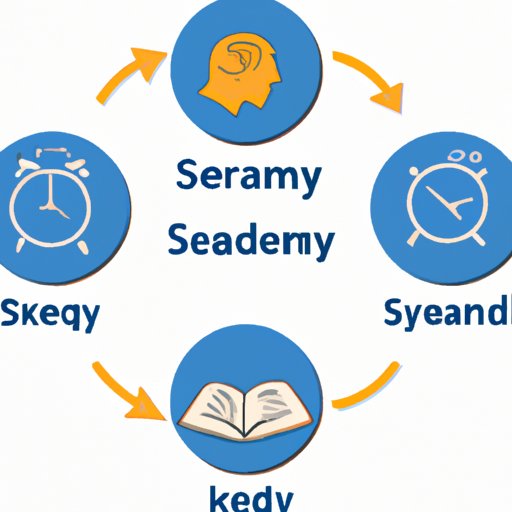Introduction
Studying is an essential part of academic success and it’s important to find the best time to do it. But when is the best time to study? It can be difficult to know when to set aside time for studying, especially with so many other commitments such as work and family. To help answer this question, this article will explore the optimal times for studying by analyzing sleep patterns and examining how they affect learning and memory processing. It will also examine the impact of napping and group study sessions on academic performance.

Analyzing the Circadian Rhythm of Students to Determine Optimal Study Times
The circadian rhythm is our body’s natural clock that tells us when to sleep, wake up, and perform certain activities. It follows a 24-hour cycle and is regulated by light and darkness. This means that different people may have different optimal times for studying depending on their own personal circadian rhythms. Some people may find it easier to concentrate in the morning while others may prefer to study at night.

How Sleep Patterns Affect Learning and Memory Processing
Sleep plays an important role in learning and memory processing. When we sleep, our brains consolidate memories and process information from the day. This means that if we don’t get enough sleep, our ability to learn and remember new information is impaired. Studies have found that students who get more than eight hours of sleep per night tend to perform better academically than those who get less than eight hours. Therefore, it is important to make sure you are getting enough sleep each night in order to maximize your study time.
Benefits of Early Morning vs. Late Night Studying
Early morning studying has several benefits. First, it helps you stay focused and motivated because there are fewer distractions in the morning. Second, it allows you to take advantage of the natural energy boost that comes with the morning sunlight. Finally, it gives you a sense of accomplishment because you can start your day off by crossing something off your to-do list. On the other hand, late night studying can also be beneficial because it takes advantage of the longer nights and provides a distraction-free environment. However, it can be harder to focus at night due to fatigue and lack of motivation.

Examining How Sleep Patterns Affect Learning and Memory Processing
In addition to sleep patterns, other factors such as napping and group study sessions can also affect learning and memory processing. Napping has been found to improve alertness and focus, as well as reduce stress and improve cognitive performance. Group study sessions can also be beneficial because they provide an opportunity for students to collaborate and discuss ideas. This can help students better understand the material and retain information more effectively.
Conclusion
To summarize, there is no one-size-fits-all answer to the question of when is the best time to study. It depends on each individual’s own circadian rhythm, sleep patterns, and preferences. However, it is important to note that getting enough sleep and taking advantage of the natural energy boosts in the morning and evening can help optimize study time. Additionally, napping and group study sessions can also be beneficial for improving learning and memory processing. Ultimately, the best time to study is whatever works best for you.


